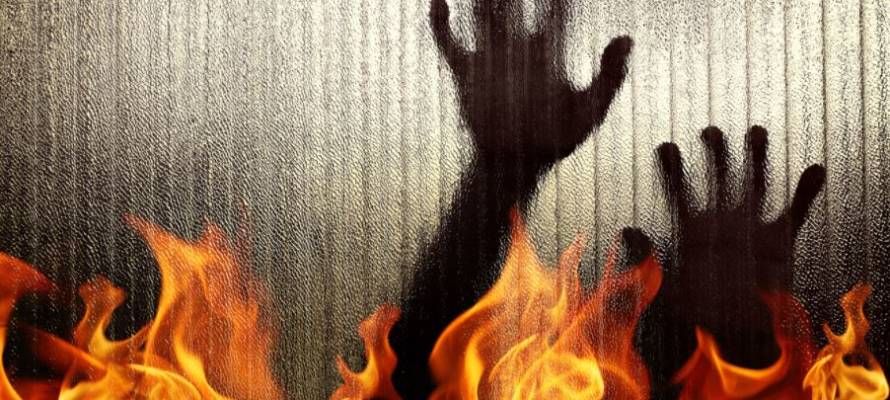This week’s Torah portion is “Shemini” (Leviticus 9:1–11:47) and among its episodes is the death by fire of Nadav and Avihu, the sons of Aaron.
By Rabbi Ari Enkin, Rabbinic Director, United with Israel
The death of Nadav and Avihu is as mysterious as it is painful. We are actually not completely sure why they died.
On the surface, as the Torah itself says, Nadav and Avihu, the eldest sons of Aaron, were killed for offering an unauthorized fire offering. As it says, “And Nadav and Avihu, the sons of Aaron, took their fire pan and lit it on fire along with the incense. This was a strange fire before the Lord…and a fire came forth and killed them.”
Other reasons given by our sages as to why Nadav and Avihu were killed include: They were drunk when they brought their offering, they weren’t wearing the required garments when officiating, they entered the Sanctuary without first washing their hands and feet, they refused to marry for reasons of arrogance, they made a ruling in Jewish law in the presence of the “chief rabbi” Moses, and they wanted Moses and Aaron to die so that they could take over. The Nadav and Avihu story is a very complicated episode indeed.
Although not readily apparent, all of these reasons are connected and have common denominators. For example, at least three of the reasons cited are related to the different requirements that a priest must observe when bringing an offering – he must wear the required garments, wash his hands and feet as required, and, of course, not be drunk.
So what was so terrible about offering an unauthorized fire? Even if done wrong, was it really worthy of death?
In one of the lesser-known and more controversial teachings, it is explained that Nadav and Avihu were actually greater than Moses and Aaron but. unfortunately, they did not channel this blessing properly and instead used it arrogantly. Sure, the offering of an unauthorized fire was probably not worthy of the death penalty, but the reason they did so was in order to “show up” Moses, Aaron, and other onlookers by publicly declaring by means of an unexpected offering that they were equal to or greater than Moses and Aaron. They were declaring that they don’t need rules on how and when to make offerings. They can do so when they want. They were greater than the leaders.
This was the mistake, and this is the trap into which they fell – a trap that that ensnares many of us. Even though Nadav and Avihu were greater than Moses and Aaron, they should have humbled themselves. Moses and Aaron were appointed as the leaders of the Jewish People by God! As such, Nadav and Avihu should have accepted the authority of Moses and Aaron.
This is also why they wanted Moses and Aron to die…they thought that they were more worthy to be the leaders and could do a better job!
And so it is with us. We may be subordinate in one way or another to people who, truth be told, are less qualified, competent, or talented than we believe we are. Perhaps we could do the same job better or faster. Perhaps we deserve more respect. But the lesson of Nadav and Avihu is one of humility and humbling ourselves. We must show respect and decency even to those who might be “below” us on the totem pole.
For more articles on this week’s Torah portion by Rabbi Enkin, click on the links below.
https://unitedwithisrael.org/living-torah-take-responsibility-and-dont-shift-the-blame/
